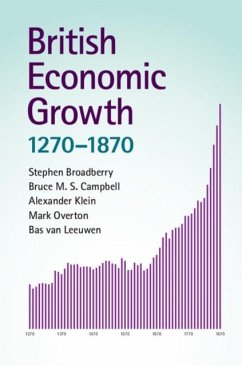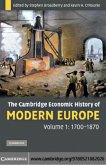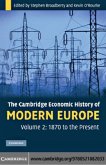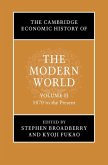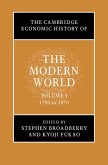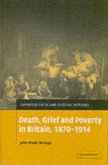This is a definitive new account of Britain's economic evolution from a backwater of Europe in 1270 to the hub of the global economy in 1870. A team of leading economic historians reconstruct Britain's national accounts for the first time right back into the thirteenth century to show what really happened quantitatively during the centuries leading up to the Industrial Revolution. Contrary to traditional views of the earlier period as one of Malthusian stagnation, they reveal how the transition to modern economic growth built on the earlier foundations of a persistent upward trend in GDP per capita which doubled between 1270 and 1700. Featuring comprehensive estimates of population, land use, agricultural production, industrial and service-sector production and GDP per capita, as well as analysis of their implications, this will be an essential reference for anyone interested in British economic history and the origins of modern economic growth more generally.
Dieser Download kann aus rechtlichen Gründen nur mit Rechnungsadresse in A, B, BG, CY, CZ, D, DK, EW, E, FIN, F, GR, HR, H, IRL, I, LT, L, LR, M, NL, PL, P, R, S, SLO, SK ausgeliefert werden.

